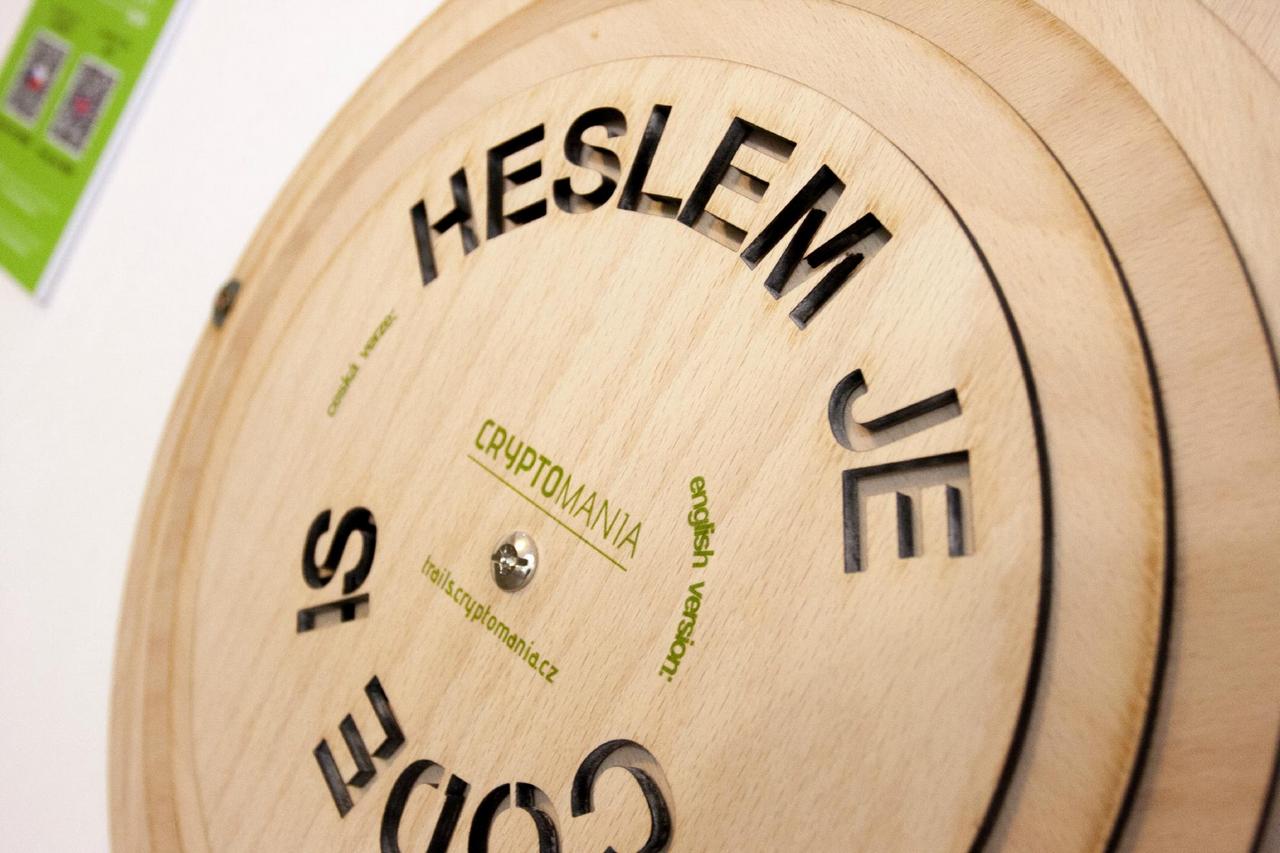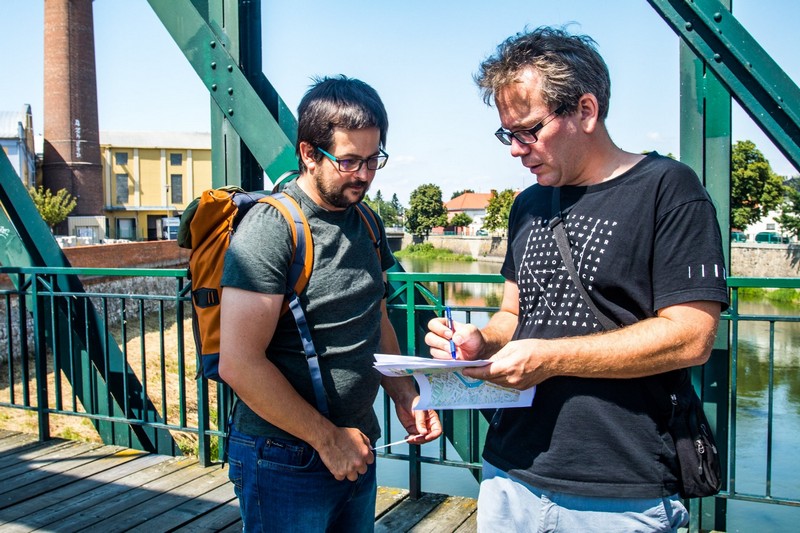What are puzzles and how to solve them?
Forget the morse code or the flag semaphore - in our games the puzzles are something completely different. You should also abandon the idea that only the few chosen ones with the IQ of a rocket engineer are able to crack a cipher. Puzzles are for everybody in our rendition - we work mainly with the creativity of players in our games. With a little bit of effort everyone can solve our puzzles.

We like to use riddles and logic puzzles as ciphers in our games and events. There is a high chance of anyone solving them while using common sense, keen eye, creativity and patience. We design our puzzles so that they are entertaining and solving them makes you feel good about overcoming an obstacle. That is the main difference between our puzzles and ciphers used for military communication, banking or website encryption, where the main goal is to not let anyone unauthorized see through them.
How do our puzzles look? Unpredictably. They can be hidden anywhere – in pictures, texts, songs, objects, facades, statues. They always contain certain low-key aspects that point to discovering the way they work. Puzzles always have one unambiguous solution and represent classic unstructured problems. There are clear instructions and you know, more or less, what the result is supposed to be like, but nobody tells you which path to take in order to get to said result. Puzzles are often a challenge that require a little struggle along the way.
All the puzzles in our games are designed and thoroughly tested by us. There is no need to worry that you would be disadvantaged by not knowing how to work with cryptographic keys. Our puzzles do not require the knowledge of any specific cryptographic techniques, all you need is the ability to think creatively about a problem, patience, sometimes maybe even stubbornness and determination to overcome slight failures, and last but certainly not least, the power to keep your spirits up even in the occasional cases of misfortune.

How do you solve a puzzle?
Following these 10 tips will surely help.
Upon encountering a new puzzle:
- Study closely all the things you can see and name them.
- Try the simplest approach first.
- Clearly state what idea you want to try and spend a reasonable amount of time with it. It is not unusual that one has the right idea but gives up too soon.
- Do not focus on a single thought. Give yourselves a time limit and try something else if it does not work.
- Brainstorm.
- Be suspicious. Strange coincidences are often not really coincidences. Notice any patterns..
- Do not be paranoid. Strange coincidences are often just coincidences.
- Use all the information and material you have available.
- In case of emergency: Read the first letters. Break the object!
- The best way to deal with difficult puzzles is not finding out that they are difficult.
Modified text from sifrovacky.cz.
Puzzles are a team business. It is much more efficient and interesting to solve them in a team than by yourself. The saying “two heads are better than one” applies more than ever. The joy of finding a solution to a problem is multiplied and the setbacks are easier to deal with in a team. When designing our puzzles we try to create them in such a way that all the team members of varying degrees of experience and skillsets get equal opportunity.
All the skills and techniques you acquire while solving puzzles are useful for dealing with many problems and situations we all face regularly nowadays, especially at work. Puzzle-solving expands our creativity, ability to think outside the box and solve complex problems, cooperation, communication and reasoning skills.
Tips for puzzle solving in a team:
- Cooperate.
- Voice your ideas.
- Listen to what others have to say.
- Go through the things you have already tried.
- Work simultaneously and try more options at the same time.
- Work together, a single person makes a mistake easily.